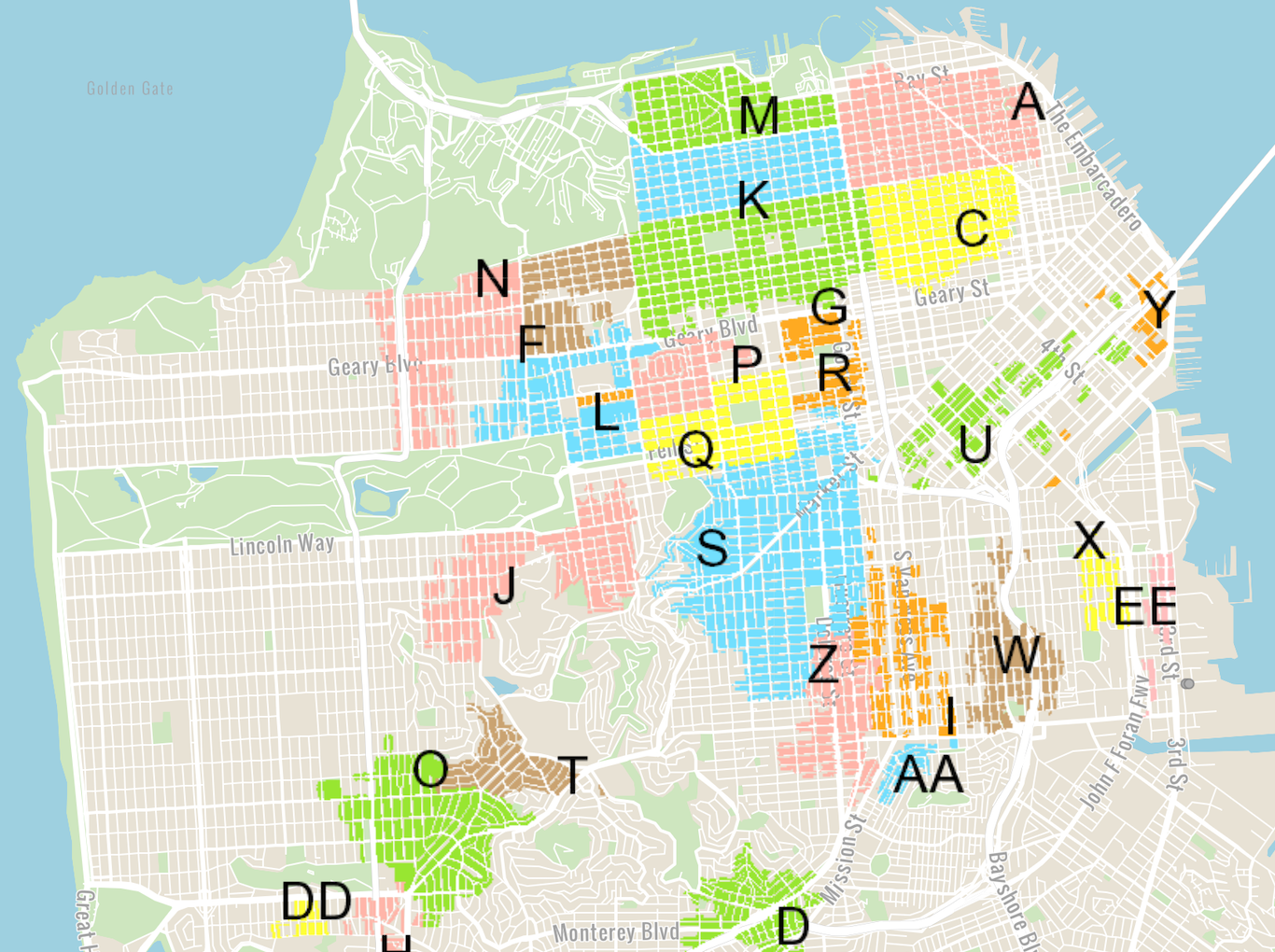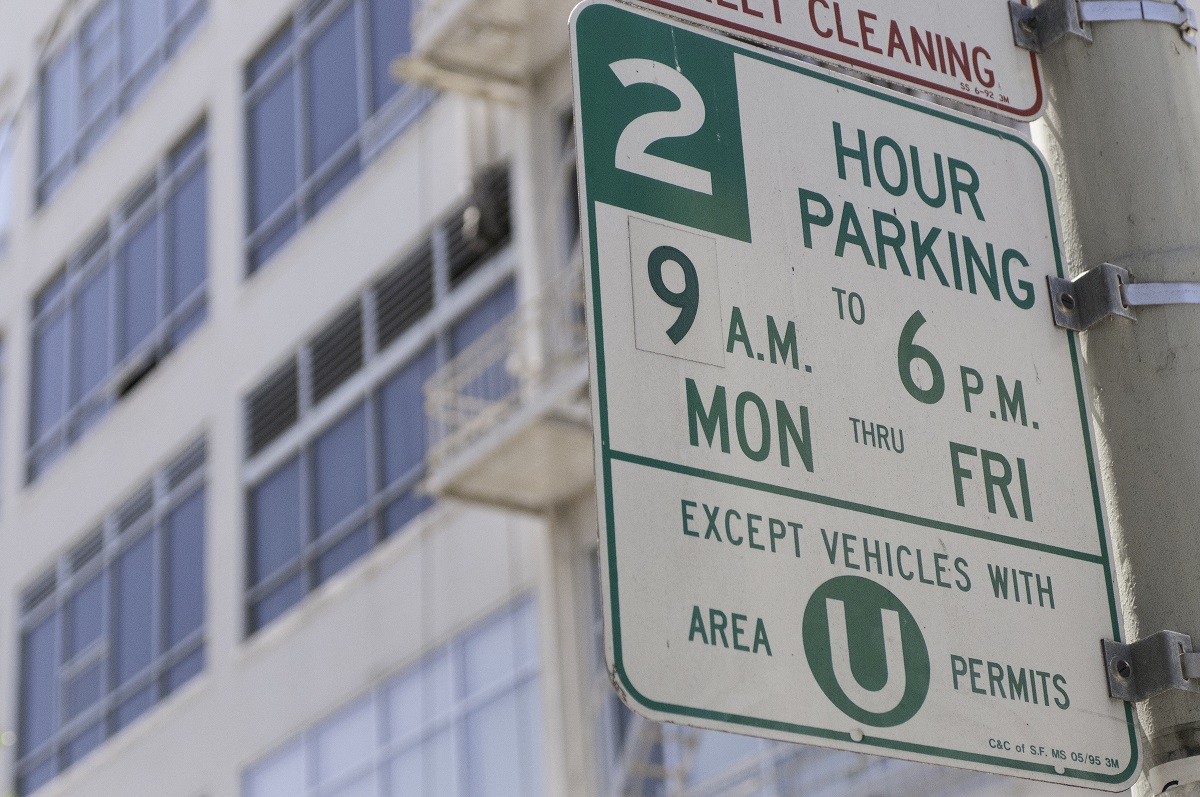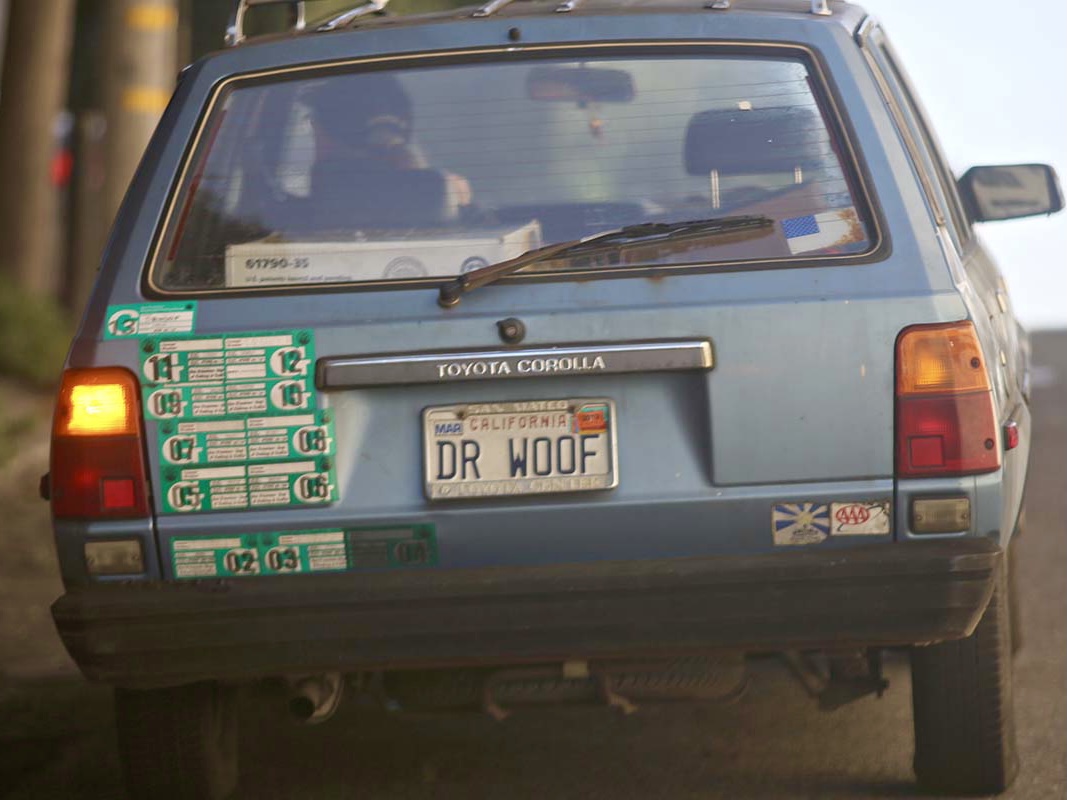Navigating SF Neighborhood Parking Permits: Your Essential Guide
San Francisco, a city celebrated for its iconic landmarks, vibrant culture, and breathtaking views, presents a unique set of challenges for its residents – and perhaps none is as universally discussed as parking. For those living in the city, especially in its dense, bustling neighborhoods, finding a reliable and legal parking spot can feel like an Olympic sport. This is precisely where the **SF neighborhood parking permit** system steps in, offering a crucial lifeline for those living in dense neighborhoods, transforming daily parking struggles into a manageable routine.
Understanding the intricacies of the San Francisco residential parking permit (RPP) program, along with other specialized permits, is not just about convenience; it's about avoiding costly tickets, ensuring compliance with city regulations, and maintaining peace of mind. Whether you're a newcomer moving to SF from Marin, contemplating keeping your car in the city, or a long-time resident needing to renew your permit, this comprehensive guide will demystify the process, providing you with all the details so that you can apply for the permit you need and navigate the city's parking landscape with confidence.
Table of Contents
- Understanding the SF Neighborhood Parking Permit Landscape
- Types of SF Neighborhood Parking Permits You Need to Know
- Navigating the Application Process for Your SF Neighborhood Parking Permit
- Renewing Your SF Neighborhood Parking Permit: What You Need to Know
- The Shift to Virtual Permits and LPR Technology
- Understanding Parking Zones and Exemptions
- Troubleshooting and Important Considerations for Your SF Neighborhood Parking Permit
- The Future of SF Neighborhood Parking Permits
Understanding the SF Neighborhood Parking Permit Landscape
San Francisco's parking regulations are notoriously complex, a necessary evil to manage the limited street space in one of America's densest cities. Without a clear understanding, residents can quickly accumulate parking tickets, leading to significant financial strain. The city employs various mechanisms to regulate parking, including parking meters, color curbs (red for no stopping, yellow for commercial loading, green for short-term parking, blue for disabled parking, and white for passenger loading), and, most importantly for residents, the **SF neighborhood parking permit** program.
The core idea behind residential parking permits (RPP) is to prioritize street parking for residents of specific neighborhoods, offering them exemption from parking time limits that apply to non-permitted vehicles. This system helps to reduce commuter parking in residential areas and ensures that those who live there have a better chance of finding a spot near their homes. It's a critical component of urban planning in San Francisco, designed to manage traffic flow, reduce congestion, and improve the quality of life for residents.
Why Parking Permits are Essential in SF
Imagine trying to find street parking in a neighborhood like Nob Hill without a permit. You'd be constantly moving your car to avoid time limits, facing the stress of searching for a new spot, and almost certainly incurring a parking ticket or two. This is where the San Francisco Residential Parking Permit (RPP) program steps in, offering a crucial lifeline for those living in dense neighborhoods. With a valid **SF neighborhood parking permit**, you gain exemption from parking time limits in your neighborhood, allowing you to park your vehicle on the street for extended periods without fear of being ticketed for overstaying.
This not only saves residents time and money but also reduces the environmental impact of cars circling endlessly in search of parking. The permit system is a testament to the city's efforts to balance the needs of its residents with the demands of urban living. It's an investment in convenience and peace of mind, making it an indispensable tool for vehicle owners in San Francisco.
Types of SF Neighborhood Parking Permits You Need to Know
While the Residential Parking Permit (RPP) is the most common type of **SF neighborhood parking permit** for residents, the city offers a few types of parking permits to address various needs. Understanding these different categories is the first step to ensuring you apply for the correct one.
Residential Parking Permits (RPP): Your Primary Lifeline
The RPP is designed for San Francisco residents who own a vehicle and reside within a designated RPP zone. The primary benefit is the exemption from posted time limits (typically 1-hour or 2-hour limits) within your specific permit zone. This means you can park on the street without worrying about moving your car every few hours.
To qualify for an RPP, you must have a vehicle registered in your name at your San Francisco address. This is a government permit, and it's essential to ensure your vehicle registration reflects your current SF address. If you're moving to SF from Marin very soon, and you need to get a street parking permit as you want to keep your car in the city with you, your first step will be to update your vehicle registration with the DMV to your new San Francisco address. Once you have changed your address with the DMV online, please call SFMTA to confirm the registration address change before applying in person or online. This can often be the slowest part of the process, so it's wise to do it as soon as possible.
It's important to note that an RPP does not guarantee a parking space, nor does it exempt you from other parking regulations such as street cleaning, colored curb restrictions, or temporary no-parking signs. It merely provides an exemption from time limits within your zone. There is also no overnight parking permit that allows you to ignore street cleaning or other specific restrictions; the RPP focuses on time limits.
Beyond RPP: Other Key Permits
Beyond the standard RPP, the SFMTA offers several other specialized permits:
- Contractor Permits: These are essential for businesses or individuals performing work in San Francisco that requires extended parking. Similar to RPP, with your renewal notice you received in the mail, you can use this service to renew your San Francisco residential parking permit (RPP), or contractor permit. For business accounts, vehicle can be associated with the company.
- Moving Van Permits: If you're planning a move, a moving van permit allows you to reserve a parking space for a moving van or other needs directly in front of your residence or business. This is invaluable for ensuring a smooth, hassle-free moving day in a city where parking is scarce. This is your first step to planning a block party or big event in the streets of San Francisco, as similar permits can be obtained for such occasions.
- Press Vehicle Parking Permits: Media professionals can apply for these permits, which grant specific parking privileges for press vehicles while on assignment.
- Temporary Parking Permits: For those in the process of gathering all required documents for a full RPP, there is a temporary parking permit you can pay for. This allows you to park legally while you finalize your vehicle registration and other paperwork. This is particularly useful if you're a newcomer and need time to update your records.
Navigating the Application Process for Your SF Neighborhood Parking Permit
Applying for an **SF neighborhood parking permit** can seem daunting, but the SFMTA has streamlined the process over the years. People buying new permits can either do so in person at the Customer Service Center (11 South Van Ness Ave), by mail, or online. The online application is often the most convenient option, allowing you to complete the process from the comfort of your home.
Regardless of the method, you'll need to gather specific documents to prove your residency and vehicle ownership. These typically include:
- Proof of Residency: A valid California Driver's License or ID with your San Francisco address, utility bills (PG&E, water, garbage) in your name at that address, or a lease agreement.
- Proof of Vehicle Ownership/Registration: Your vehicle registration showing your name and the San Francisco address. As mentioned, ensuring your address is updated with the DMV is crucial. Once you have changed your address with the DMV online, please call SFMTA to confirm the registration address change before applying in person or online.
Renewing Your SF Neighborhood Parking Permit: What You Need to Know
Renewing your **SF neighborhood parking permit** is just as important as the initial application. The SFMTA aims to make renewals as seamless as possible. You will typically receive a renewal notice in the mail well before your permit expires. This notice will contain your account information and a PIN number, which you can use to renew your San Francisco residential parking permit (RPP), or contractor permit, online.
It's critical to address any outstanding issues before attempting to renew. Payment of delinquent tickets is required for permit renewal. This means if you have any unpaid parking tickets associated with your vehicle, you'll need to settle those first. This policy underscores the importance of adhering to parking regulations, even with a permit. Regular checks for outstanding tickets can prevent last-minute complications when it's time to renew.
The renewal process, like the initial application, can be completed online, by mail, or in person. Online renewal is often the quickest and most efficient method, especially if you have your renewal notice handy.
The Shift to Virtual Permits and LPR Technology
A significant change in the **SF neighborhood parking permit** system took effect on April 1, 2022. The SFMTA transitioned annual residential parking permit (RPP) permits from physical stickers to virtual permits. This modernization effort aims to streamline the RPP application and administration process, making it more efficient for both the city and residents.
With virtual permits, there's no need to wait for a physical sticker to arrive in the mail or worry about it falling off your windshield. Instead, your vehicle's license plate becomes your permit. This transition is made possible by License Plate Recognition (LPR) technology, which allows SFMTA parking enforcement officers to scan license plates and instantly verify if a vehicle has a valid virtual permit. This technology enhances enforcement accuracy and reduces the potential for fraud.
This shift simplifies the process considerably. When you renew or apply for a new permit, the system automatically links your permit to your license plate number. This means less paperwork, faster processing, and a more technologically advanced approach to parking management in San Francisco.
Understanding Parking Zones and Exemptions
A key aspect of the **SF neighborhood parking permit** system is the concept of permit zones. San Francisco is divided into various RPP zones, each designated by a letter (e.g., Zone A for Nob Hill). Your RPP is only valid within the specific zone where you reside. This means if you have a permit for Zone A, you cannot use it to park in Zone B and be exempt from time limits there.
The purpose of these zones is to manage parking demand locally and prevent residents from one neighborhood from parking indefinitely in another. It's crucial to know your zone and understand its boundaries. The SFMTA provides a residential parking permit map that outlines these zones.
Deciphering the Residential Parking Permit Map
I'm looking at the residential parking permit map and I see that many parts of the city don't have permit zones. Am I correct to understand that this means you can park on the street without a permit in those areas? Yes, you are correct. In areas not designated as RPP zones, street parking is generally regulated by posted time limits (e.g., 2-hour parking, 4-hour parking) or other restrictions (meters, street cleaning) but does not require an RPP for exemption from time limits.
However, even in non-permit zones, parking can be incredibly challenging due to high demand. The only mechanism for residential permit parking is for certain neighborhoods, where the city has identified a need to prioritize resident parking due to high parking occupancy and limited street space. This means that while some areas offer free, unrestricted parking (aside from general regulations), they are often quickly filled. Always pay close attention to all posted signs, as regulations can vary block by block, even within the same neighborhood. You can also find summary parking regulations by blockface for the City of San Francisco on the SFMTA website, which can be incredibly helpful for understanding specific street rules.
Troubleshooting and Important Considerations for Your SF Neighborhood Parking Permit
Even with a clear understanding of the permit system, issues can arise. Here are a few common scenarios and important considerations for your **SF neighborhood parking permit**:
- Changing Your Vehicle or Address: If you get a new car or move to a different address within San Francisco, you must update your permit information with the SFMTA. This often involves updating your DMV registration first, then contacting the SFMTA.
- Lost or Stolen Permits (for physical stickers, though now largely virtual): In the past, if your physical sticker was lost or stolen, you would need to report it and apply for a replacement. With virtual permits, this concern is largely mitigated, as the permit is tied to your license plate number.
- Parking Tickets: Even with an RPP, you can still receive parking tickets for violations such as parking during street cleaning, blocking a driveway, parking at a red curb, or parking in a commercial loading zone. A permit only exempts you from time limits in your zone. Always be vigilant about all posted signs.
- Visitor Parking: The RPP system does not typically include provisions for long-term visitor parking. If you have guests, they will need to abide by the posted time limits or find off-street parking. Some neighborhoods may have limited guest permits available, but this varies and is not a universal feature.
- The Process for Revising Residential Parking: If a neighborhood without an RPP zone wishes to establish one, or if an existing zone wants to revise its boundaries, the process for revising residential parking would require a change of legislation, which may prove to be difficult. This highlights that the RPP system is a complex, legally defined framework, not easily altered.
The Future of SF Neighborhood Parking Permits
The SFMTA continues to evolve its parking management strategies, with a focus on efficiency, equity, and sustainability. The transition to virtual permits and the reliance on LPR technology are clear indicators of this modernization. As San Francisco continues to grow and adapt, so too will its parking policies.
Future developments might include more dynamic pricing models for parking, further integration of technology, and potentially new types of permits to address emerging urban mobility needs. The goal remains to optimize the use of limited street space while supporting the daily lives of San Francisco residents. Staying informed through official SFMTA channels will be key to navigating these ongoing changes.
Conclusion
Navigating the world of **SF neighborhood parking permits** is undoubtedly a rite of passage for many San Francisco residents. From understanding the few types of parking permits available to mastering the application and renewal processes, this guide has aimed to provide you with all the essential details. The shift to virtual permits and the use of LPR technology signify a modern approach to managing the city's complex parking demands, making the process more streamlined than ever before.
Remember, having a valid permit, whether it's a residential RPP, a contractor permit, or a temporary one, is your key to avoiding costly parking tickets and enjoying the convenience of parking near your home. Always ensure your vehicle and address details are current with the DMV and SFMTA, and be diligent about renewing your permit on time, settling any delinquent tickets beforehand.
We hope this comprehensive overview has equipped you with the knowledge and confidence to manage your parking needs in San Francisco effectively. What has been your experience with SF parking permits? Share your thoughts and tips in the comments below, or feel free to share this article with anyone moving to or living in the city who could benefit from this information!

San Francisco Residential Parking Map - Catha Daloris

Residential Parking Permit Evaluation Launches | SFMTA

How To Register Car For Sf Parking - Baughman Ressuffe